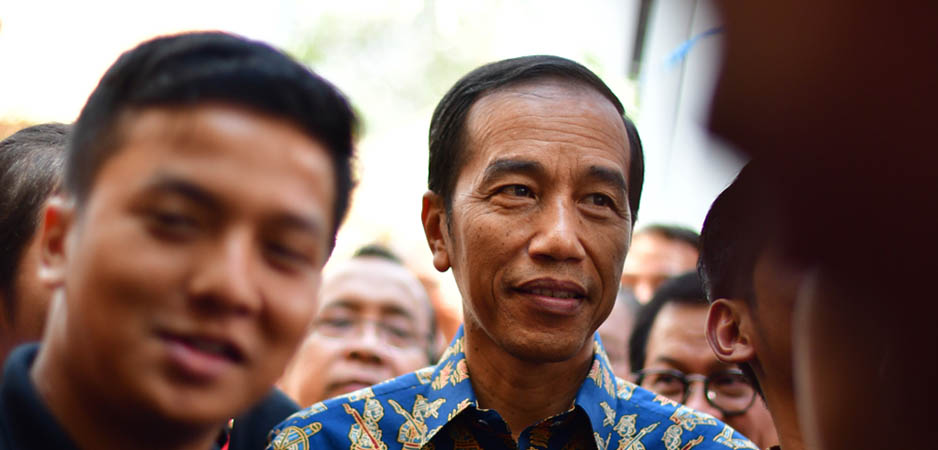With an election on the horizon, President Jokowi needs to justify his spending on Indonesia’s infrastructure.
On April 17, Indonesians will head to the polls for a presidential election. To help choose the best person for the job, election debates have been held between the two candidates, President Joko Widodo and former General Prabowo Subianto. The latest debate, which took place on February 17, has caught the attention of voters, with the main subjects being food security, energy and infrastructure.
Improving infrastructure is a pressing topic in Indonesia. While Widodo (known as Jokowi) had the upper hand in the debate by laying out his programs, he failed to address how his policy over the last four years has boosted economic growth. Throughout his term in office, Jokowi has focused on developing the country’s roads, airports, bridges and ports. Despite completing several projects, there is concern that government spending has not led to a direct impact on the economy.
In 2018, government expenditure reached $155 billion or 99.2% of the allocated budget. This was the highest since the republic gained independence in 1945. A 2018 study by the Indonesian Institute of Science found that public sector spending on infrastructure has not had a positive impact on growth. The results showed that, between 2014 and 2018, the budget for construction projects was boosted by 26.8%, but economic growth was only 7.3%. While such initiatives can create jobs throughout different industries, they have had minimal impact.
This has led to concern for Indonesians. While the country is making an effort to improve infrastructure, it has taken on huge loans and greater national debt. Yet the potential has not been maximized by the Jokowi administration. As of August 2018, Indonesian debt was recorded at $308.8 billion. This grew 12.5% compared to 2017. The debt-to-GDP ratio has reached 28.4%. This means the country is only permitted to loan a further 4.6% or $35 billion.
There is nothing wrong with boosting the quality of a country’s resources. After all, improved roads can lead to trucks transporting goods in a faster way, leading to more efficient trade. This is especially the case under strong economic conditions. However, under a weak economy, infrastructure projects become challenging when a country is thrown into debt and the impact is not as substantial as once predicted.
For President Jokowi, there is a need to demonstrate that new developments can actually boost the Indonesian economy as the government claims. It would make most sense for the administration to only conduct such projects when they are of utmost priority so that national debt is controlled. The question for Jokowi is what infrastructure projects are for if they do not really trigger substantial economic growth.
The current problem is that after the construction projects are complete, it is the responsibility of the government to increase their utilization. Toll roads, for example, should only be built in order to solve transportation problems such as traffic jams by discouraging people from driving during peak hours. But if this leads to increased fuel consumption and pollution due to more people using vehicles, the new development will have simply caused another problem instead of solving the existing one.
As per Castrol’s Magnatec Stop-Start index, Indonesia has two of the world’s worst cities for roads — Jakarta ranking first and Surabaya fourth. According to the index, every car in Jakarta starts more than 33,000 times a year, compared with Tampere in Finland at just over 6,000 and Brisbane in Australia at nearly 7,000. The high frequency of vehicle use in Indonesia has caused congestion, polluted air and increased demand for fuel.
Ahead the upcoming election, President Jokowi needs to prove that the completion of development projects can have a real impact. Unfortunately, infrastructure projects that are delayed affect the people they were supposed to help. The development of dams, for example, often receive no attention. In this case, General Subianto rightly criticized Jokowi’s policy on boosting infrastructure as being not well prepared. Thus, the president needs to be able to justify his policy, particularly as he plans to accelerate infrastructure projects if elected for a second term.
The views expressed in this article are the author’s own and do not necessarily reflect Fair Observer’s editorial policy.
Support Fair Observer
We rely on your support for our independence, diversity and quality.
For more than 10 years, Fair Observer has been free, fair and independent. No billionaire owns us, no advertisers control us. We are a reader-supported nonprofit. Unlike many other publications, we keep our content free for readers regardless of where they live or whether they can afford to pay. We have no paywalls and no ads.
In the post-truth era of fake news, echo chambers and filter bubbles, we publish a plurality of perspectives from around the world. Anyone can publish with us, but everyone goes through a rigorous editorial process. So, you get fact-checked, well-reasoned content instead of noise.
We publish 2,500+ voices from 90+ countries. We also conduct education and training programs
on subjects ranging from digital media and journalism to writing and critical thinking. This
doesn’t come cheap. Servers, editors, trainers and web developers cost
money.
Please consider supporting us on a regular basis as a recurring donor or a
sustaining member.
Will you support FO’s journalism?
We rely on your support for our independence, diversity and quality.






